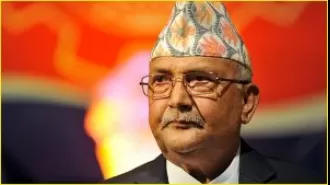Juvenile accused in Porsche crash to be released, Bombay High Court orders
A 17-year-old boy involved in a fatal car accident in Pune has been ordered to be released from an observation home by the Bombay High Court.
June 25th 2024.

In Mumbai, on Tuesday, the Bombay High Court made a decision to release a 17-year-old boy from an observation home. This comes after he was allegedly involved in a car accident in Pune last month while driving a Porsche. The accident resulted in the death of two people who were riding a two-wheeler. The teen had been held at an observation home in Pune by the police, who claim he was driving under the influence of alcohol.
A division bench of Justices Bharati Dangre and Manjusha Deshpande reviewed the case and deemed the orders issued by the Juvenile Justice Board to be invalid. The court stated that the teen should be released immediately and placed under the care of his guardian. The bench also noted that the orders passed by the JJB were unlawful and made without proper jurisdiction.
During the hearing, the court observed that the teen's age was not taken into consideration amid the public outcry and immediate reaction to the accident. The bench emphasized the need to consider his age and treat him differently as per the Juvenile Justice Act, despite the seriousness of the crime.
The court stated that the primary objective of the Juvenile Justice Act is rehabilitation and the accused is already receiving treatment from a psychologist. The court also ordered for the treatment to continue.
The decision was made in response to a plea filed by the boy's paternal aunt, who claimed that he was being unlawfully detained and demanded his immediate release. The accident occurred on May 19 and the boy was granted bail by the JJB on the same day. However, the police later filed an application to amend the bail order and on May 22, the boy was taken into custody and remanded to an observation home.
The aunt's plea stated that the police had deviated from the correct course of investigation due to public uproar and political agendas, thus defeating the purpose of the Juvenile Justice Act. The court considered these factors and ordered for the boy's release.
In conclusion, the Bombay High Court's decision to release the 17-year-old boy was based on the principles of the Juvenile Justice Act and the need to treat minors differently from adults. The court emphasized the importance of rehabilitation and the accused's age in the decision-making process.
A division bench of Justices Bharati Dangre and Manjusha Deshpande reviewed the case and deemed the orders issued by the Juvenile Justice Board to be invalid. The court stated that the teen should be released immediately and placed under the care of his guardian. The bench also noted that the orders passed by the JJB were unlawful and made without proper jurisdiction.
During the hearing, the court observed that the teen's age was not taken into consideration amid the public outcry and immediate reaction to the accident. The bench emphasized the need to consider his age and treat him differently as per the Juvenile Justice Act, despite the seriousness of the crime.
The court stated that the primary objective of the Juvenile Justice Act is rehabilitation and the accused is already receiving treatment from a psychologist. The court also ordered for the treatment to continue.
The decision was made in response to a plea filed by the boy's paternal aunt, who claimed that he was being unlawfully detained and demanded his immediate release. The accident occurred on May 19 and the boy was granted bail by the JJB on the same day. However, the police later filed an application to amend the bail order and on May 22, the boy was taken into custody and remanded to an observation home.
The aunt's plea stated that the police had deviated from the correct course of investigation due to public uproar and political agendas, thus defeating the purpose of the Juvenile Justice Act. The court considered these factors and ordered for the boy's release.
In conclusion, the Bombay High Court's decision to release the 17-year-old boy was based on the principles of the Juvenile Justice Act and the need to treat minors differently from adults. The court emphasized the importance of rehabilitation and the accused's age in the decision-making process.
[This article has been trending online recently and has been generated with AI. Your feed is customized.]
[Generative AI is experimental.]
0
0
Submit Comment





